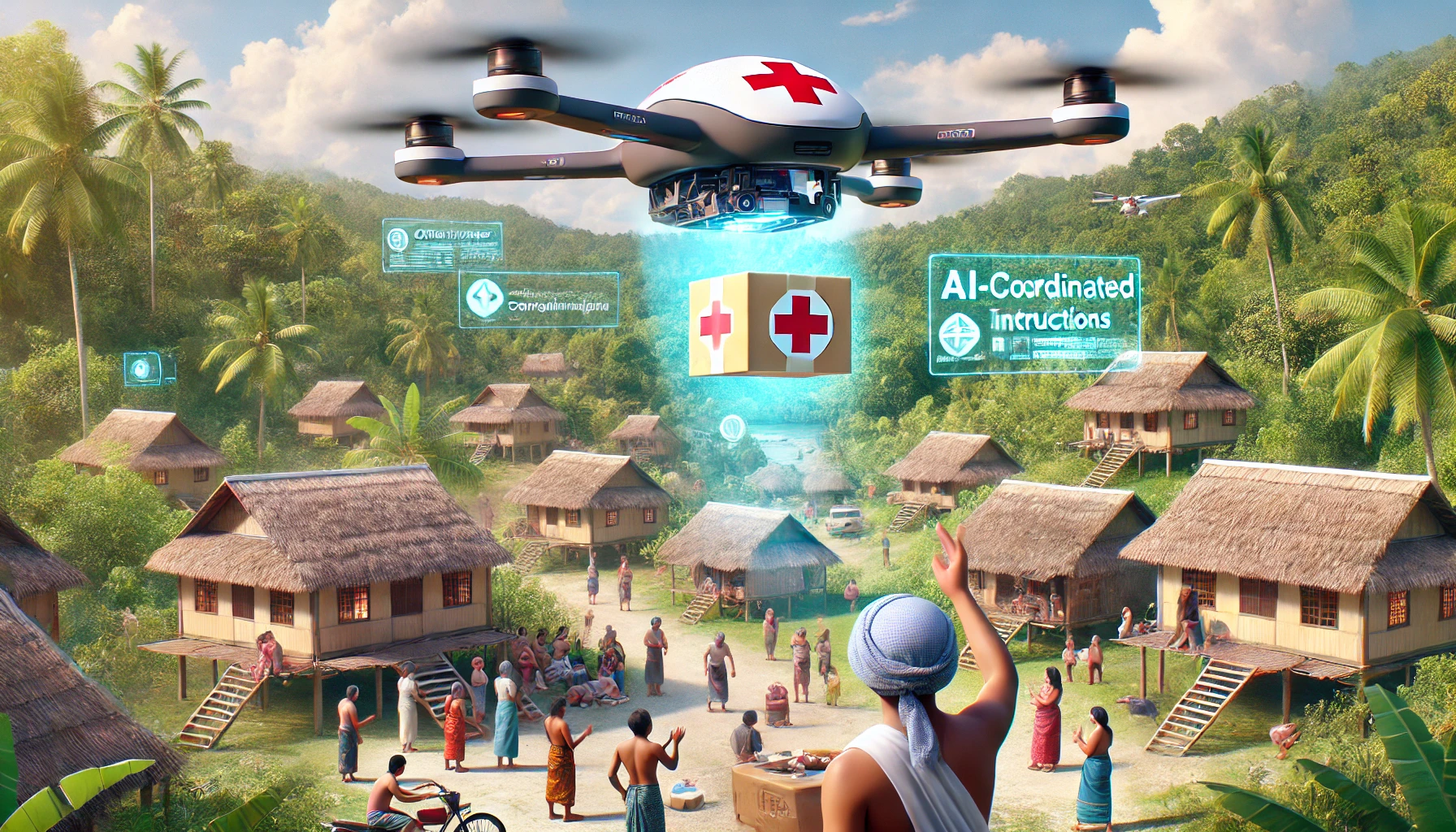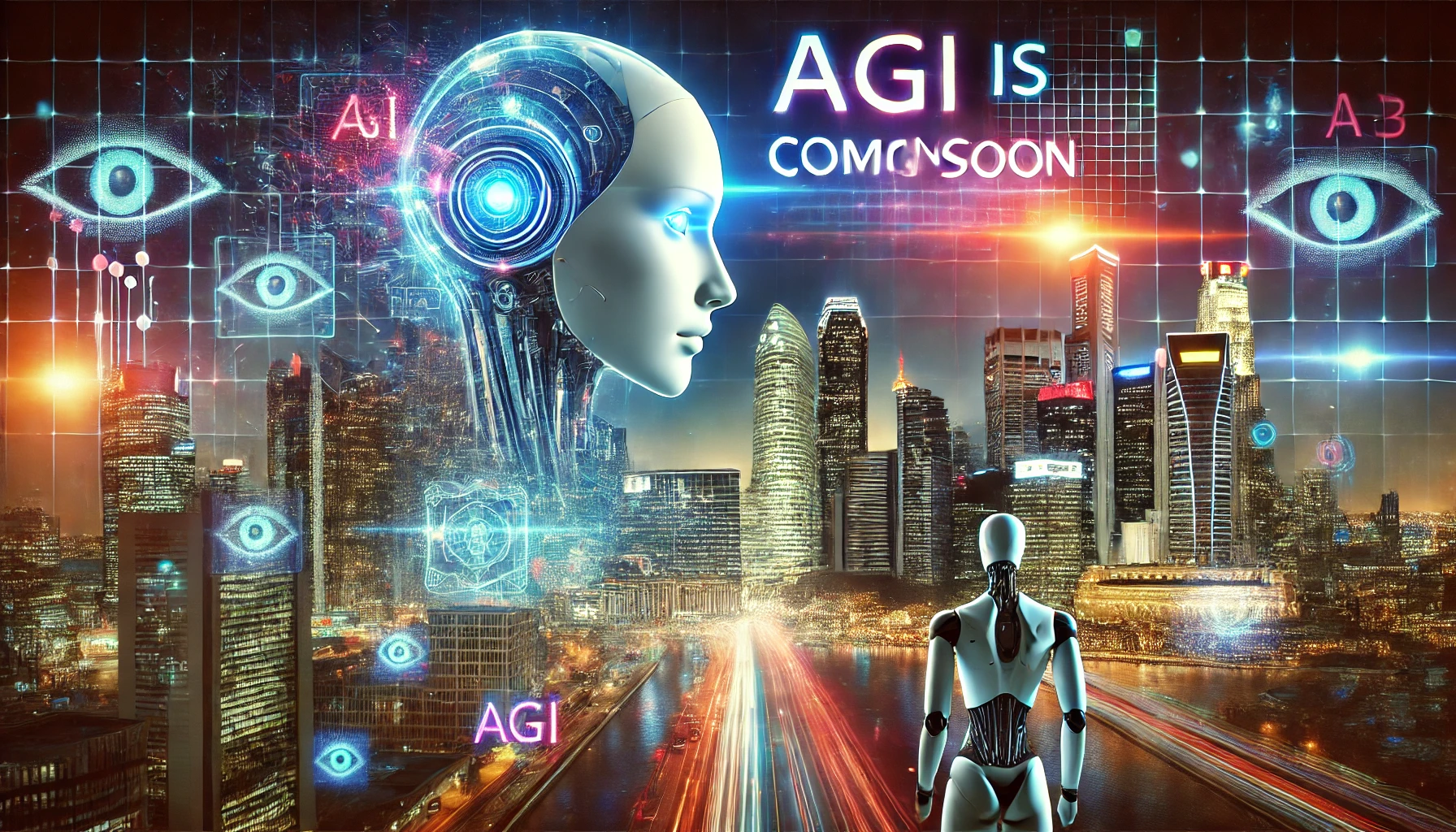Artificial General Intelligence (AGI) has the potential to revolutionize emergency medical response, particularly in remote areas where resources are limited, and rapid access to healthcare is challenging. Below, we explore how AGI can contribute to this critical field, supported by case studies and examples.
1. Intelligent Medical Diagnostics
AGI systems can provide near-instantaneous, accurate diagnoses based on patient data, even in the absence of medical professionals.
Example Use Case:
In rural Kenya, a project implemented AI-driven diagnostic tools in clinics. AGI can take this further by synthesizing data from wearable devices, imaging, and patient history to diagnose complex conditions like sepsis or cardiac issues.
2. Optimizing Emergency Logistics
AGI can optimize the deployment of resources, including ambulances, drones, and medical supplies, by analyzing geographical, traffic, and environmental data in real time.
Case Study:
In Rwanda, drones were used to deliver blood to rural areas. With AGI, these systems could predict demand for medical supplies based on historical and real-time data, ensuring critical resources are always available.
3. Remote Assistance and Training
AGI-powered systems can guide local health workers or even untrained individuals in providing emergency care through augmented reality (AR), virtual reality (VR), or voice-assisted technologies.
Example:
During disasters in remote regions of India, VR simulations have been used for training healthcare workers. An AGI system could provide personalized training and real-time guidance during emergencies, improving outcomes significantly.
4. Predictive Analytics for Proactive Response
AGI can analyze climate patterns, population health trends, and disease outbreaks to predict medical emergencies, enabling preemptive action.
Case Study:
The Ebola outbreak in West Africa was exacerbated by delayed responses. An AGI-driven system could analyze epidemiological data and predict outbreak patterns, guiding early containment efforts.
5. Language Translation for Multilingual Communication
In linguistically diverse remote areas, AGI can serve as a universal translator, enabling healthcare providers to communicate with patients in their native languages.
Example Use Case:
In Papua New Guinea, with over 800 languages, communication barriers often delay medical care. AGI can enable seamless multilingual interactions to improve understanding and treatment adherence.
6. Real-Time Monitoring and Alerts
Wearables and IoT devices can transmit patient data to AGI systems, which monitor for anomalies and issue alerts for conditions requiring immediate attention.
Case Study:
In Alaska, remote patient monitoring has reduced hospital readmissions. AGI could enhance this by not only detecting but also predicting life-threatening conditions like strokes or heart attacks.
7. Resource Allocation During Disasters
AGI can prioritize resource distribution based on severity and necessity during natural disasters or pandemics.
Example:
After the Haiti earthquake in 2010, resource allocation was a challenge. An AGI system could dynamically evaluate needs and allocate resources such as vaccines, food, and medical personnel to the hardest-hit areas.
8. Enhancing Telemedicine
AGI can act as an intermediary in telemedicine by providing comprehensive analyses of patient conditions, suggesting treatment options, and assisting in complex decision-making.
Example:
Telemedicine is widely used in remote Australian Outback regions. AGI could augment these services by providing an additional layer of intelligence for complex diagnoses.
9. Autonomous Mobile Medical Units
AGI could power autonomous vehicles or drones equipped with medical equipment and trained for basic to advanced care delivery in remote areas.
Case Study:
A prototype of an autonomous ambulance was tested in Europe. AGI could enhance this with real-time decision-making capabilities, navigating remote terrains and delivering critical care en route.
10. Psychological Support
AGI can provide mental health support in crisis situations, where trained counselors may not be available.
Example Use Case:
During typhoons in the Philippines, many survivors suffer from PTSD. AGI-driven systems could offer immediate psychological interventions via conversational interfaces.
Challenges and Ethical Considerations
- Data Privacy and Security: Ensuring patient data is secure and used ethically.
- Bias in Algorithms: Avoiding biases that may disadvantage certain populations.
- Infrastructure Dependence: AGI systems require reliable internet and power, often lacking in remote areas.
- Human Oversight: Maintaining a balance between AGI autonomy and human intervention.
Conclusion
AGI offers transformative opportunities to improve emergency medical response in remote areas. By addressing current limitations and integrating AGI into healthcare systems, we can significantly enhance access to life-saving care, reduce response times, and improve health outcomes worldwide.
Would you like further exploration on specific AGI technologies or real-world examples?
[SEO optimized]


